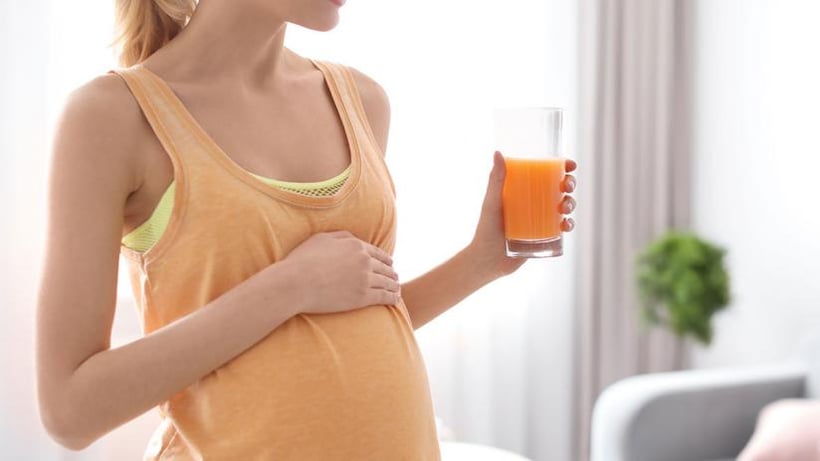
Earlier this month Food Standards Australia New Zealand (FSANZ) updated its advice on food safety during pregnancy. FSANZ is advising expectant mothers to avoid consuming fresh and unpasteurised juices. This change is based on the fear that these products may cause listeria, a form of food poisoning, which can spread to the fetus and placenta.
Typically, pregnant women have lower levels of immunity and are at a higher risk of illnesses which is why food poisoning during pregnancy can have more serious outcomes. Food-borne illness can make both the mother and baby unwell, and in severe cases cause miscarriage, birth complications or stillbirth.
When it comes to juices, it’s recommended that pregnant women choose packaged and pasteurised juices. This is because the process of pasteurisation is meant to kill any harmful bacteria and pathogens that may exist. Juices that are unpasteurised, fresh or “cold pressed” should be avoided.
Along with this update, FSANZ made other recommendations which include advising that hummus and other dips containing tahini should be avoided. This is because a number of food-borne illness outbreaks have been linked to tahini or foods containing tahini.
Other foods that pregnant women should avoid include raw sprouts, raw eggs, soft cheeses (unless thoroughly cooked), unpasteurised dairy products, oysters, pre-packed salads and soft serve ice cream. For more information on what to avoid during pregnancy, vist the FSANZ website.
What is listeria?
Listeria is a common cause of food-borne illness. Most people can eat listeria bacteria without falling ill but those that do fall ill may experience symptoms such as fever, headache, tiredness, aches and pains. Less common symptoms are diarrhoea, nausea and abdominal cramps. For vulnerable and high-risk groups, such as the elderly, the sick, pregnant women and unborn children, listeriosis (the sickness caused by listeria) can be life-threatening.
Learn more about listeria on our blog, 'A Lesson In Listeria - Everything You Need to Know'.
Food safety during pregnancy
Even if a woman does not typically get sick from a food-borne illness, that may change during pregnancy and it’s important to understand the changes that occur.
Pregnant women are more susceptible to infection and illness than they would normally be. Not only does the pregnant woman need to protect herself but also her unborn child who hasn’t developed an immune system capable of fighting infection yet. This is why food poisoning can result in premature birth, stillbirth or death of a newborn.
Food safety tips for pregnant mothers
Expectant mother’s can avoid food-borne illness or more severe outcomes by following these five helpful tips:
- wash hands frequently – especially before and after handling food, being out in public, or after using the toilet
- take extra care keeping countertops, refrigerators, and cutting surfaces clean and sanitised
- avoid cross contaminating raw food and ready-to-eat foods by making sure the same cutting board is not used for raw and cooked food, and store raw meat and poultry on the bottom shelf of the refrigerator
- ensure that meats, poultry, seafood, and egg products are thoroughly cooked to proper temperatures before eating
- seek medical attention immediately if believe that you may have food poisoning





